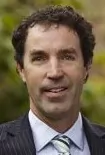A labourer working on a basement excavation in Fulham was crushed to death when the excavations, which were not properly supported, collapsed.
The owner of the excavation company (who was also the site manager) was found guilty of manslaughter, as he was aware of the dangerous state of the excavations, but took no steps to ensure it was safe. In addition, a health and safety advisor, Richard Golding, was prosecuted for exposing another to a risk of health and safety, and he too was convicted. Both have been jailed.
Mr Golding assisted the excavation company in writing their method statement, and carried out monthly site visits. The court determined that the method statement was inadequate, as it did not include any temporary works engineer drawings or schemes in relation to the propping and shoring of temporary works that would be needed on site, and was clearly a "cut and paste exercise", taken from a method statement for a previous workplace. The court also noted that once the work commenced a completely different procedure to that in the method statement was followed, and that Mr Golding was aware of this through his inspections of the site, but took no actions.
Photographic evidence presented to the court showed a number of deep unshored and unpropped excavations. However, Mr Golding maintained both in interview and in court that he did not see any excavations at all other than a small one at the front of the building, which was a shallow trial pit. He did not appear to have noticed that extensive excavation work was underway and ongoing at the site during the period of his visits.
In sentencing Mr Golding to nine months imprisonment, the Judge said that Mr Golding's defence (in relation to seeing no excavations on site) was "ludicrous" and that his failure to do anything when on site showed a level of disregard to the workforce that was "staggering".
The court also noted that the danger of collapse was not only foreseeable; it had been specifically identified by Mr Golding in his risk assessments.
This case is a salutary reminder that people other than employers can be prosecuted in relation to workplace accidents. The health and safety advisor was effectively in charge of a place of work, as he had the power to halt the work if it was unsafe. A similar incident could easily result in the same penalty in New Zealand.
The content of this article is intended to provide a general guide to the subject matter. Specialist advice should be sought about your specific circumstances.

